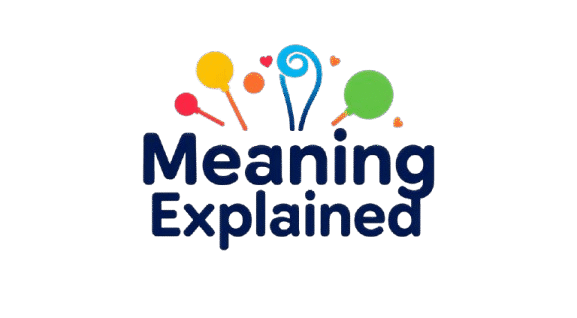Understanding “To No Avail”
Definition
“To no avail” is an idiomatic expression that means an effort or action was unsuccessful, yielding no desired results. It captures the frustration of trying hard but achieving nothing.
Etymology
The phrase traces back to Late Middle English. “Avail” comes from Old French availle, rooted in Latin advalēre, meaning “to be of worth.” Adding “no” emphasizes futility, highlighting a lack of value or success in the effort.
Usage
This phrase is used to describe situations where significant effort fails to produce results. It conveys disappointment and is common in both formal and informal contexts, often adding a dramatic tone to the narrative.
Examples
- Formal: “The team petitioned for policy changes, but to no avail.”
- Informal: “I tried fixing the old car all weekend, but to no avail.”
Synonyms and Alternatives

Synonyms
- In vain: Stresses futility.
Example: “She searched for her lost ring in vain.” - Unsuccessfully: A direct, neutral term.
Example: “He attempted to resolve the issue unsuccessfully.” - Fruitlessly: Highlights lack of results.
Example: “They debated fruitlessly for hours.”
Alternative Phrases
- Without success: Formal and clear.
Example: “The project proceeded without success.” - To no effect: Similar to “to no avail.”
Example: “His efforts were to no effect.” - All for nothing: Informal, emphasizes wasted effort.
Example: “All her studying was all for nothing.” - Came to nothing: Suggests a failed plan.
Example: “Their ambitious proposal came to nothing.” - Failed to yield results: Professional tone.
Example: “The campaign failed to yield results.”
Choosing the Right Expression
- Formal Writing: Use “to no avail,” “without success,” or “to no effect” for a polished tone.
- Informal Speech: Opt for “all for nothing” or “in vain” for relatability.
- Emphasizing Effort: “Fruitlessly” or “unsuccessfully” highlight the work put in.
Context matters—choose based on tone and audience for maximum impact.
Cultural and Literary Usage

- Classic Literature: In novels like Moby-Dick by Herman Melville, characters’ relentless pursuits, such as Captain Ahab’s quest for the white whale, are often depicted as efforts “to no avail,” emphasizing obsession and tragic futility. Example:
- Modern Fiction: Contemporary authors use “to no avail” to portray characters’ struggles against insurmountable odds, adding emotional resonance. In dystopian novels, protagonists may fight oppressive systems to no avail, highlighting societal critiques.
- Poetry: Poets employ “to no avail” to convey poignant emotions, such as unrequited love or existential struggles, often in a concise yet powerful manner. Example: “He carved her name in the stars to no avail, for her heart belonged elsewhere.”
- Speeches and Oratory: In motivational or historical speeches, “to no avail” underscores challenges overcome or persistent struggles, inspiring audiences to persevere. Example: “We petitioned for justice to no avail, yet our resolve grows stronger.”
- Theater and Drama: Playwrights use the phrase in dialogues to depict characters’ failed attempts at reconciliation or ambition, amplifying dramatic tension. In Shakespearean plays, for instance, characters like Hamlet strive “to no avail” against fate. Example: “He sought to avert tragedy to no avail, as fate sealed their doom.”
- Cultural Narratives: In storytelling traditions, such as folktales or myths, “to no avail” describes heroes’ futile efforts against supernatural forces, reinforcing moral lessons about humility or perseverance. Example: “The warrior battled the enchanted forest to no avail, learning to respect its power.”
Frequently Asked Questions (FAQs)
What does “to no avail” mean?
“To no avail” is an idiomatic expression meaning an effort or action was unsuccessful and did not achieve the desired result, emphasizing the futility of the attempt.
How is “to no avail” used in a sentence?
It’s used to describe failed efforts, often with a sense of frustration. For example: “She tried to repair the laptop to no avail, as it still wouldn’t start.”
What are some synonyms for “to no avail”?
Common synonyms include “in vain,” “unsuccessfully,” and “fruitlessly.” Each highlights the lack of success but varies slightly in tone and formality.
Can “to no avail” be used in both formal and informal contexts?
Yes, it works in both. In formal writing, it adds a polished tone (e.g., “The negotiations were to no avail”). In informal speech, it conveys frustration (e.g., “I called him all day to no avail”).
What are alternative phrases to “to no avail”?
Alternatives include “without success,” “to no effect,” “all for nothing,” “came to nothing,” and “failed to yield results,” each suited to different tones and contexts
Conclusion
“To no avail” powerfully conveys the frustration of fruitless efforts. Understanding its meaning, origins, and alternatives enhances communication. By using synonyms like “in vain” or phrases like “all for nothing,” you can vary tone and style. This expression, rich in literary and cultural use, adds nuance to both formal and informal language, making it a valuable tool for expressive communication.

